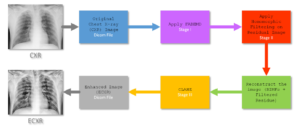Keynote Speakers

Denys Makarov (Biography), Institute of Ion Beam Physics and Materials Research, Helmholtz-Zentrum Dresden-Rossendorf e.V., Dresden, Germany – “Surface magnetism of magnetoelectric Cr2O3 antiferromagnets”.
Julie Grollier, Laboratoire Albert Fert, CNRS, Thales, Université Paris-Saclay, Palaiseau, France
Invited speakers
Franca Albertini, IMEM-CNR, Parma, Italy

Riccardo Bertacco (Biography), Department of Physics, Politecnico di Milano, Italy – “Reconfigurable magnonic devices for RF processing and wave computing”.
Oksana Chubykalo-Fesenko, Instituto de Ciencia de Materiales de Madrid, CSIC, Madrid, Spain
Vincent Cros, Laboratoire Albert Fert, CNRS, Thales, Université Paris-Saclay, Palaiseau, France
Bernard Dieny, SPINTEC, Grenoble, France
Claire Donnelly, Max Planck Institute for Chemical Physics of Solids, Dresden, Germany

Amalio Fernandez-Pacheco (Biography), Institute of Applied Physics, TU Wien, Vienna, Austria – “Chiral nanomagnetism induced by 3D nanopatterning using double-helix nanowires”.

Peter Fischer (Biography), Materials Sciences Division, Lawrence Berkeley National Laboratory, Berkeley, California, USA – “Challenges, advances and opportunities with 3D topological spin textures”.

Eric Fullerton (Biography), Center for Memory and Recording Research, University of California, San Diego, La Jolla, USA – “Spin-orbit torque phenomena in complex oxide heterostructures”.

Börge Göbel (Biography), Martin-Luther-Universität Halle-Wittenberg, Halle (Saale), Germany – “Orbital Hall effect accompanying quantum and topological Hall effects”.
Ron Goldfarb, NIST, Boulder, Colorado, USA

Helena Gomonay (Biography), Institut für Physik, University of Mainz, Mainz, Germany – “Altermagnetic candidate Mn5Si3: magnetic structure and altermagnetic dynamics”.

Kostyantyn Gusliyenko (Biography), Universidad del Pais Vasco, Donostia, Spain – “Magnetic hopfions and anti-hopfions”.

Burkard Hillebrands (Biography), Fachbereich Physik and Landesforschungszentrum OPTIMAS, Rheinland-Pfälzische Technische Universität Kaiserslautern-Landau, Kaiserslautern, Germany – “Accumulation and coherency phenomena in magnonic systems”.
Hans J. Hug, EMPA, Dübendorf, Switzerland
Mathias Kläui, Institute of Physics, Johannes Gutenberg University Mainz, Mainz, Germany

Michaela Kuepferling (Biography), Istituto Nazionale di Ricerca Metrologica (INRiM), Torino, Italy- “Towards reliable measurements for spintronics: the Dzyaloshinskii-Moriya interaction – a case study”.

Hide Kurebayashi (Biography), London Centre for Nanotechnology, University College London, London, UK- “Spintronic Kapitza pendulum: dynamical stability by spin transfer”.
Kai Liu, Department of Physics, Georgetown University, Washington DC, USA

Luis Lopez-Diaz (Biography), Universidad de Salamanca, Salamanca, Spain – “Dissipative solitons in achiral Néel domain walls driven by spin-orbit torque”.

Stéphane Mangin (Biography), Institut Jean Lamour, Université de Lorraine, Vandoeuvre-lès-Nancy, France – “Ultra-fast all optical switching in spintronic devices”.

Christopher Marrows (Biography), School of Physics and Astronomy, University of Leeds, UK – “Spin textures in synthetic antiferromagnetic multilayers”.

Takahiro Moriyama (Biography), Department of Materials Physics, Nagoya University, Nagoya, Japan – “Inter- and intra-sublattice spin mixing conductance of antiferromagnetic spin pumping effect in α-Fe2O3/Pt”.
Silvia Picozzi, CNR-SPIN, Chieti, Italy

Carlos Rojas-Sánchez (Biography), Institut Jean Lamour (UMR CNRS), Université Lorraine, Nancy, France – “Gr-based Rashba interfaces and low-symmetry materials for spin-orbitronics”.

Hari Srikanth (Biography), University of South Florida, Tampa, Florida, USA – “Spin Seebeck effect in rare-earth iron garnet heterostructures”.

Mark Stiles (Biography), National Institute of Standards and Technology, Gaithersburg, Maryland, USA – “How magnetic tunnel junctions can help make computing more efficient”.
Silvia Tacchi, CNR-IOM, Perugia, Italy
Paola Tiberto, Advanced Materials for Metrology and Life Sciences, INRiM Torino, Torino, Italy
Hyunsoo Yang, Department of Electrical and Computer Engineering, National University of Singapore, Singapore
Yue Zhang, MIIT Key Laboratory of Spintronics, School of Integrated Circuit Science and Engineering, Beihang University, Fert Beijing Institute, Beijing, China

